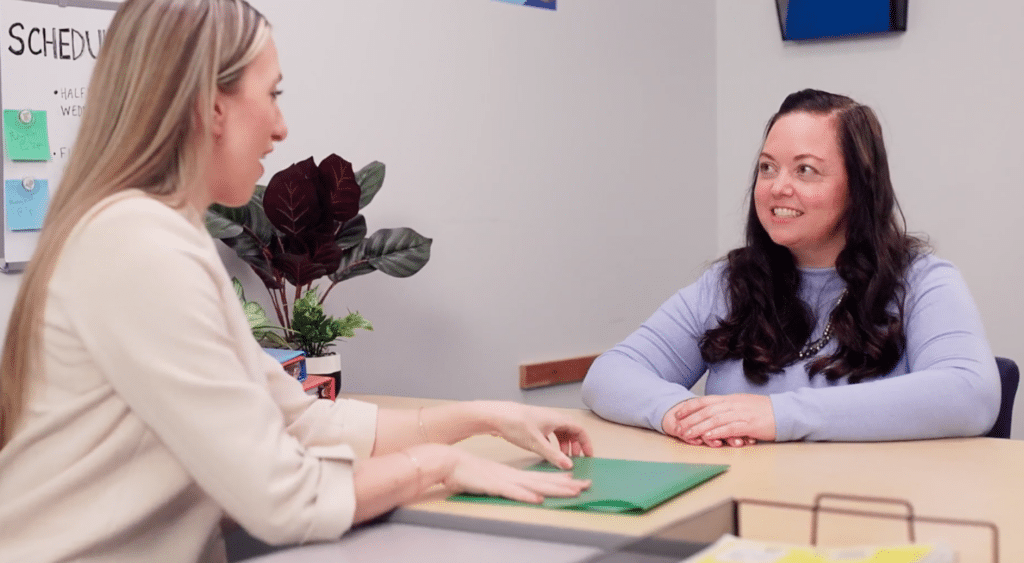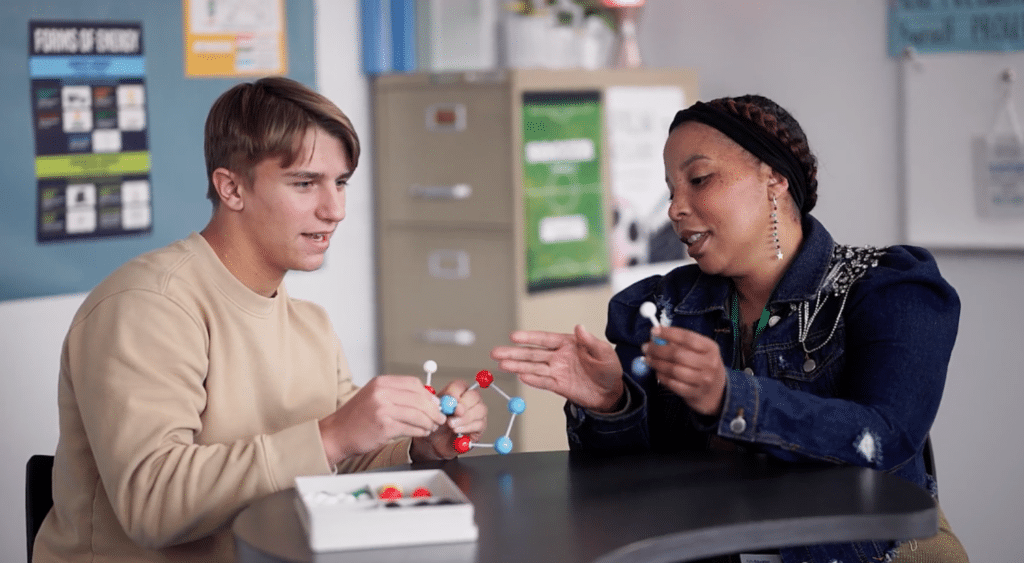Do I need a science, English, or math degree to become a tutor?

In today’s job market, where an emphasis is placed on having a college degree, you might assume that a tutor with a degree in science, English, or math has a higher chance of landing tutoring jobs. However, that’s not necessarily the case.
Education jobs are currently in high demand. Teacher shortages have reached a critical point across the United States. Schools need dedicated people to enter the education field. There has never been a better time to become a tutor or work in K-12 education.
Even if your skills don’t exactly match the tutor job description perfectly, apply anyway!
In this article, we’ll explore when you might need a degree to become a tutor, how to get a position without a degree, and what qualities and skills make for a successful tutor.
When is a degree needed?
There isn’t a one-size-fits-all answer to this question. The simple answer is, sometimes. Some tutoring jobs require a teacher certification or bachelor’s degree, while others only require a high school diploma. What determines whether a degree is needed? There are several factors, including subject matter, grade level, as well as state and school district policies and requirements.
Many folks ask us specifically: Do I need a math degree to tutor? It depends! You may not need a degree to help students with multiplication facts, but it might be required to support algebra or calculus students.
It’s good to remember, though, that even if a degree isn’t required for a tutoring position, tutors with degrees or certifications usually have a better chance of getting hired than those who don’t.
While a degree is a large investment of time and money, it’s often not difficult to obtain a substitute teacher certification in your state. That alone could move your application closer to the top of the pile. Check out this article to learn more about becoming a substitute teacher in your state.
What’s more important than a degree?
Experienced administrators know that it takes much more than a degree to be a successful school tutor. The fact is districts often struggle to hire and retain quality tutors. So, when reviewing applicants, they look for qualities and skills beyond that piece of paper.
They know that consistency is crucial to student success. Even if a tutor doesn’t meet all the requirements, districts would much rather have the same tutor reliably work with students than find a new one every few weeks.
Your life experience and how you present yourself in an interview can convince an administrator to give you a chance. Here are a few other that schools are looking for in a tutor candidate:
Show up—consistently!
Consistency is key. Dependability and reliability are essential traits in any job. They make a strong impression.
If tutors are absent and lessons are canceled, tutoring becomes ineffective, rapport and trust between the student and tutor break down, and student learning becomes stagnant.
Deliver the curriculum.
A curriculum is a carefully designed course of study. States and school districts curate specific curricula for grades and classes to maximize student success. It’s about giving students the knowledge and tools they need to move forward to the next stage in their education.
Each grade level builds on what came before. As a tutor, it’s important that you deliver the curriculum you’ve been provided with and use it to construct your lessons.
Plan your lessons.
The curriculum is like a roadmap, and each lesson is like a point of interest along the route. Plan each “stop” carefully. Each lesson plan should include what material you want to cover and how to present it. The district’s curricular resources should provide guidance on this. Have both a starting and finishing point for each lesson.
Be flexible.
Be mindful that each student is different. As you work with your students, you’ll become familiar with their strengths, talents, and interests, and you can tailor lesson plans to meet their unique needs and abilities.
Some students are visual learners, while others learn better by listening. They may also be kinesthetic learners, so physical activity and working with physical objects suit them best.
Others assimilate information by reading and writing. Keep in mind that most students don’t fall wholly into one category; they usually gravitate to two or more different learning styles.
How to become a tutor with Kelly Education.
While degrees tell part of your employment story, they aren’t the most important qualification for becoming a tutor.
At Kelly Education, we want tutors who are punctual, professional, patient, and positive. Get more details about our tutor qualifications in our tutor job description article.
To find tutoring jobs or other education jobs near you, simply fill out our interest form, and we’ll contact you to explain how to become a tutor and let you know about tutoring jobs with one of our school district partners.

View Related: Article Job searching
You might like
Do substitute teachers get health benefits?
3 minute read
What a substitute teacher does.
4 minute read
Do substitute teachers get health benefits?
3 minute read
What a substitute teacher does.
4 minute read
Find your next job
Discover thousands of temporary, full-time, and remote jobs for beginning and experienced job seekers.


